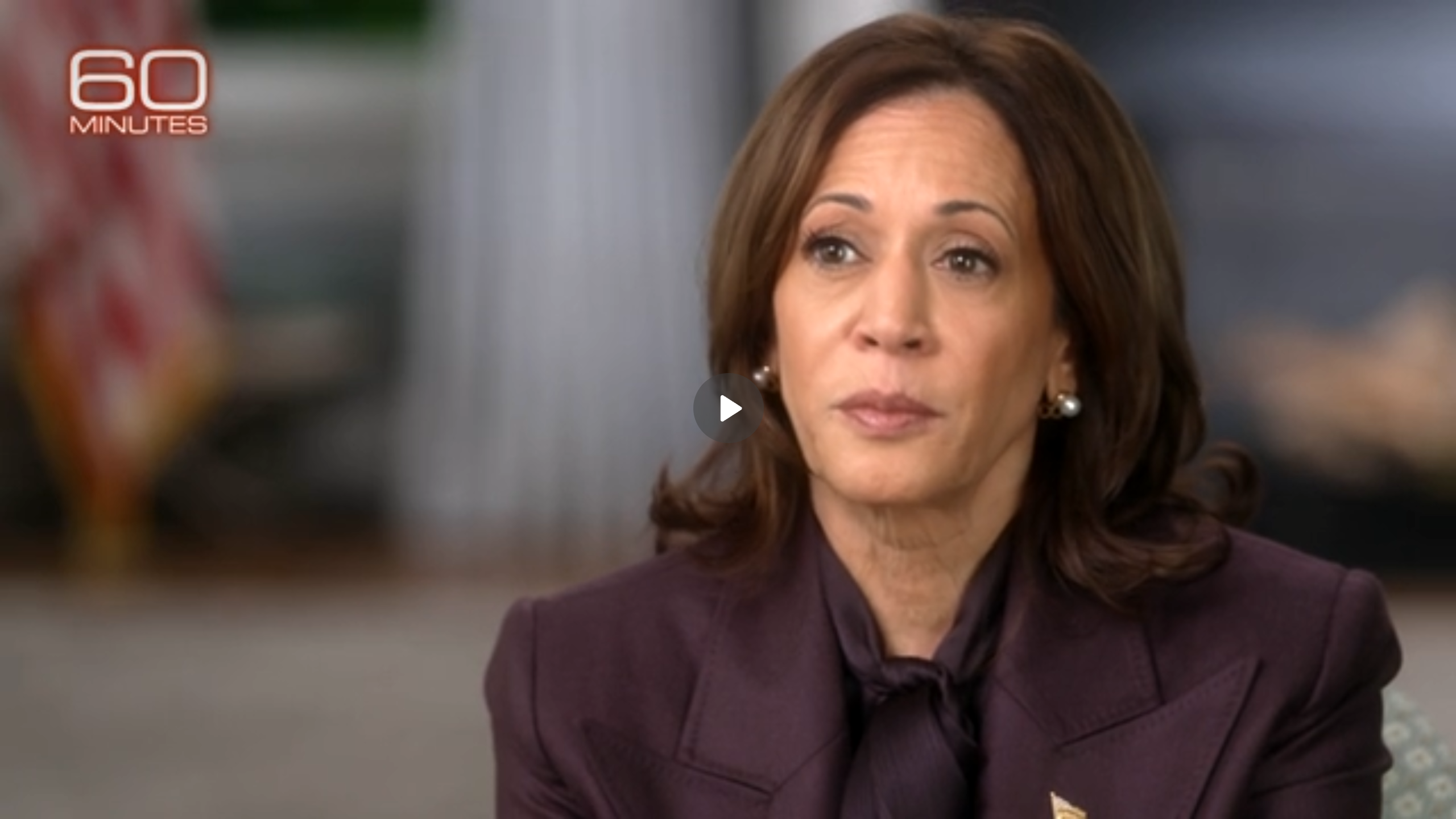CBS’s Brazen Dismissal of ’60 Minutes’ Lawsuit: Consequence of Biden-Harris Media Embrace?
In a relentless effort to avoid accountability, CBS is ardently lobbying for the dismissal of a colossal lawsuit levied against them by President Trump. The dispute, rooted in the dubious editing of a ’60 Minutes’ interview with Vice President Harris, continues to stir strife amongst the broadcasting company’s higher-ups. All indications suggest that a potential resolution through a settlement with parent company Paramount remains uncertain due to financial qualms and potential legal consequences.
Maintaining an air of dismissive superiority, CBS has scoffed at the accusations put forth by the President, deeming the lawsuit entirely without merit. Essentially, they portray it as an audacious attempt by Mr. Trump to sidestep the long-standing principles of the First Amendment. The network’s legal team hastily classified the controversial interview and ensuing broadcasted clips as ‘protected editorial speech’.
However, President Trump has countered this by pointing out the apparent creative liberty taken by CBS in editing the Kamala Harris segment. The fact that CBS is facing a breathtaking $20 billion lawsuit signals the seriousness of the case. The network’s decision to slice out certain elements of Vice President Harris’s response—deemed as a ‘word salad’ by critics—visibly enhanced her coherence on complicated Israeli policies.
In an unsettling twist, Trump alleges the unreasonable edits resulted in significant personal distress, suggesting it possibly influenced the general electoral climate. CBS’s stalwart defense of their contentious editorial choices has been paired with incessant attempts to dissolve Mr. Trump’s lawsuit, perhaps indicating their unease.
The case finds itself in the court of Judge Matthew Kacsmaryk, a Trump-appointed conservative jurist who has, thus far, resisted the desperate pleas of CBS. The latest development sees CBS trying to argue Trump possesses no legal standing in this case, postulating his damages to be purely ‘intangible’ and no different from public grievances.
In a further attempt to intimidate, they postulate that should the court rule in Trump’s favor, it would unlock the floodgates for countless consumer-oriented cases opposing media houses for their editorial decisions. This seems like a thinly veiled scare tactic by CBS lawyers to try and coerce the court’s decision in their favor.
CBS lawyers have suggested yet another eyebrow-raising request to either dismiss the case or relocate it from Texas to New York. They claim the central operations linked to the contentious interview took place nearly 2,000 miles away from the Texas courthouse. However, this proposition appears unlikely given the traditional jurisprudential norms, representing perhaps further signs of CBS’s desperation.
Certain underlying reasons for the proposed shift of the lawsuit also emerge upon examination. Legal actions against media conglomerates in the southern regions have seen plaintiffs secure persuasive benefits and compensations, it would appear that CBS is indeed trying to avoid this occurrence.
Meanwhile, Paramount’s attempts to negotiate a settlement have slammed into a roadblock. Although a mediator has been implicated, both sides have yet to concur on a settlement. Paramount’s fears revolve largely around the conception of such a settlement as a bribery act, a view primarily driven by external scrutiny and allegations.
These reservations have been amplified by the Federal Communications Commission’s (FCC) ongoing probe into CBS’s likely distortion of Harris’s interview. Legislative authorities have also thrown curveballs into the mix, expressing reservations about the broader implications of such a settlement.
As Paramount grapples with this thorny issue, a series of looming deadlines—July 2 and July 7—threaten to disrupt their efforts at diffusing Trump’s lawsuit. The stubborn existence of these issues imposes implications beyond the lawsuit itself; it endangers a potentially pivotal merger, bearing financial implications for both the company and the broader industry.
Adding another layer to this complex narrative is President Trump’s open endorsement of the Skydance takeover. Skydance’s chief executive, David Ellison, shares a web of mutual connections with Trump, which could influence the trajectory of the unfolding drama.
Voicing his thoughts to journalists recently, Trump hailed Mr. Ellison’s leadership, lauding his capability in the context of a potential acquisition. In this quagmire of corporate politicking and dubious journalistic practices, Trump’s voice of support for Ellison seems like an intriguing departure from the main narrative and reflects the intricate complexities of the media landscape.

